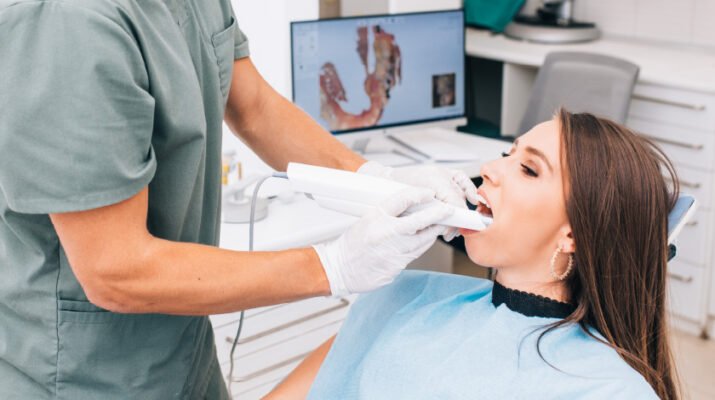The sooner issues can be addressed, the more likely they can be treated
By Deborah Jeanne Sergeant
If your strategy for oral health is to seek a check-up only when something is painful or broken, you should rethink your approach to dental health. Routine check-ups with a dental cleaning every six to 12 months offers patients many benefits; and not only to their teeth.
“We engage in patient education at each appointment,” said Michael Marrone, dentist and owner at Michael J. Marrone Dentistry in Niagara Falls. “We’re actually getting training this week on a whole new way of providing that care and disclosing where patients may not do as well with their oral hygiene and perfecting their technique. We’re preventing periodontal disease by reducing the bacterial load.”
He looks for cavities, staining, deep grooves or fissures that are not cavities but can put patients at risk for developing cavities. Wear on the enamel may also be a cause for concern. Anyone with fillings, crowns or dentures will also receive an examination of these features.
Dentists look at the hard and soft tissues of the mouth for things that may be asymptomatic and/or difficult to detect. The sooner issues can be addressed, the more likely they can be treated effectively. They check the surrounding structures, looking for enlarged nodes, pain or discomfort with the jaw area, limitation of motion or clicking.
Dentists also look at X-rays periodically for issues that would otherwise remain undetected.
Waiting to go to the dentist only when experiencing pain may cause a patient to experience “a more advanced or involved treatment involving root canal, extractions,” Marrone said. “If they came in more regularly and had a more regular exam and screening X-rays, things can be diagnosed and treated at much less state of disease.”
Beyond cavities and gum disease, Marrone treats for sleep apnea and tooth grinding.
He views oral health as related to systemic health, though it is not causal.
“Routine visits can lead us to determining if they have for example periodontal disease, gingivitis and inflammation,” he said. “Inflammation can lead to other issues. There’s a relationship between inflammation and cardiovascular health and diabetes.”
Some patients see their dentists more often than their physicians, which is one reason Marrone also screens patients for blood pressure and other health issues that may be referred to their primary care providers.
Marrone also looks for lesions in the mouth. The worst case scenario is oral cancer. While it may seem like something easy to detect on your own, it often is not.
Smoking, alcohol consumption and certain viruses raise the risk of oral cancer.
Advanced gum disease, known as periodontitis, not only leads to tooth loss but can lead to other issues.
“It’s among the risk factors for other systemic diseases like cardiovascular disease, respiratory disease and diabetes,” said Steven Speroni, chief of dentistry for the VA Finger Lakes Integrated Healthcare System. “There’s literature about a link to increased risk of Alzheimer’s. What goes on in the mouth can indicate more serious conditions people may be susceptible to and we can prevent the oral condition from deteriorating over time.”
Like Marrone, he views the oral condition as a window for systemic health throughout the body. In addition, his staff screens from blood pressure and look for signs of a nutritional deficiency or swallowing disorder.
A routine visit also allows patients to bring up any oral health concerns with the dentist or hygienist, such as sensitivity, discoloration, cracks or pain. Hygienists can also provide oral care education for patients such as proper brushing, flossing and other tips.
“If they let symptoms drive the day, it leads to more advanced and costly treatment,” Speroni said. “Regular prevention is an essential part of overall healthcare.”

